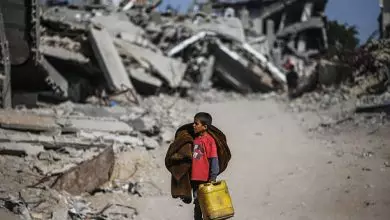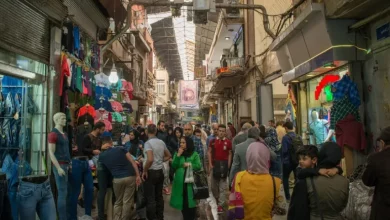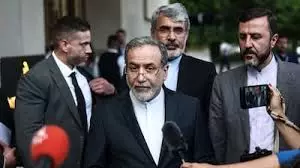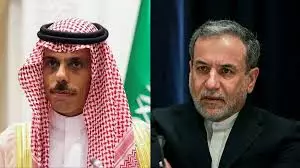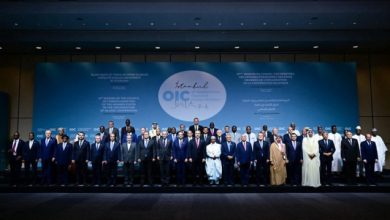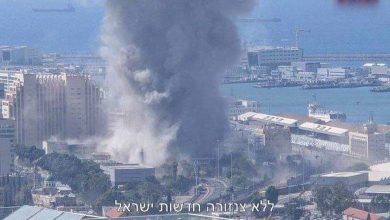Iran declares that the responsibility now lies with the European Union and the E3 nations, stating its readiness to negotiate grounded on ‘inalienable rights’
Iran's Foreign Minister, Abbas Araghchi, announced that Tehran is prepared to engage in nuclear discussions with the European Union troika, emphasizing that these talks should be founded on Iran's interests and rights, free from any coercion or intimidation.
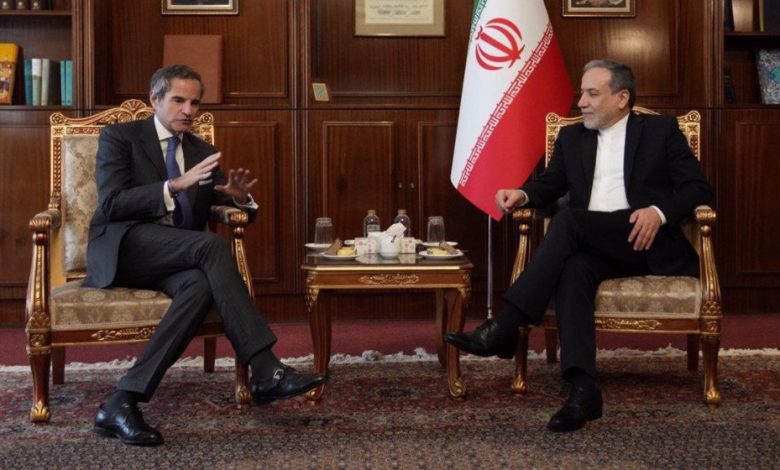
In a statement posted on his X account, Araghchi disclosed details of his “significant and candid” discussions with Rafael Grossi, the Director General of the International Atomic Energy Agency (IAEA), during their meeting in Tehran on Thursday.
The Iranian Foreign Minister has stated that the European Union and the E3 countries now hold the responsibility in current discussions. He emphasized Iran’s readiness to engage in negotiations that align with the nation’s interests and uphold its inalienable rights, but firmly asserted that the country will not enter into talks under any form of pressure or intimidation.
Araghchi, a key negotiator in the discussions that led to the 2015 nuclear agreement between Tehran and world powers, officially titled the Joint Comprehensive Plan of Action (JCPOA), affirmed Iran’s continued and full collaboration with the International Atomic Energy Agency (IAEA), in line with its obligations as a dedicated member of the Non-Proliferation Treaty (NPT).
“Disagreements can be addressed through collaboration and discussion. We have committed to moving forward with bravery and positive intent,” he stated.
The Iranian Foreign Minister stated that Iran has maintained its commitment to discussions regarding its peaceful nuclear program and has never abandoned the negotiating table.
Rafael Grossi, the head of the International Atomic Energy Agency, touched down in Tehran on Wednesday evening, leading a delegation for talks with senior Iranian officials on nuclear and political matters.
The visit, part of ongoing engagements between Iran and the International Atomic Energy Agency (IAEA), aligns with the joint statement released during Director General Rafael Grossi’s trip to Tehran on March 4, 2023.
In a joint statement, Tehran and the UN nuclear watchdog acknowledged that constructive bilateral engagements have the potential to facilitate broader agreements among state parties.
Both parties consented to conducting bilateral interactions in a spirit of collaboration, ensuring full adherence to the mandates of the International Atomic Energy Agency (IAEA) and respecting Iran’s rights and obligations as outlined in the comprehensive safeguards agreement.
In a separate engagement on Thursday, Rafael Grossi, the Director General of the International Atomic Energy Agency (IAEA), held a meeting with Mohammad Eslami, the head of the Atomic Energy Organization of Iran (AEOI). Following their discussions, they participated in a joint press conference.
The Director General of the International Atomic Energy Agency is scheduled to meet with President Masoud Pezeshkian later today for discussions.
The Joint Comprehensive Plan of Action (JCPOA) was a multilateral international agreement concluded in 2015 after 21 months of negotiations. The accord was signed between Iran and the five permanent members of the United Nations Security Council, along with Germany. Under the terms of the deal, Iran agreed to reduce certain aspects of its nuclear program in exchange for the easing of harsh sanctions, particularly those imposed by the United States.
In a dramatic political return, former US President Donald Trump, following his recent victory in the presidential election, withdrew the United States from the United Nations Security Council-endorsed nuclear agreement in May 2018. This withdrawal was accompanied by the imposition of stringent economic sanctions on Iran, despite Tehran’s compliance with the deal’s terms. Iran continued to uphold its commitments for a year even after the US exit.
Despite what Iran considers Washington’s misleading actions, Tehran adhered fully to the agreement for more than a year between 2018 and 2019. This was intended as a gesture of goodwill and to provide an opportunity for the United States to re-engage with the deal.
Iran Expresses Willingness for Cooperation, Confrontation Deemed Detrimental: Araghchi
In an interview with IRNA and IRIB following discussions with Rafael Grossi, Araghchi stated that Iran is prepared to pursue a path of cooperation, cautioning that any form of confrontation would be disadvantageous for all parties involved.
The Iranian Foreign Minister emphasized that confrontation is counterproductive for all involved parties and urged the pursuit of cooperative endeavors. He expressed Iran’s readiness to engage in collaboration, expressing hope that other parties will also adopt a prudent approach.
He reaffirmed Iran’s willingness to collaborate with the International Atomic Energy Agency, contingent upon the fulfillment of obligations by the other parties involved.
He stated that discussions with the head of the United Nations’ nuclear agency were “good and constructive,” paving the way for bilateral cooperation on nuclear matters over the coming year.
He expressed optimism that “constructive” negotiations would pave the way towards alleviating tensions, voicing hope that the recent discussions may enable the parties to reach an astute resolution to the issues “before the situation deteriorates further.”
Araghchi emphasized Iran’s dedication to upholding its responsibilities under the Joint Comprehensive Plan of Action (JCPOA), while attributing the withdrawal from the nuclear agreement to the opposing party.
He stated, “We remain confident in the peaceful nature of our nuclear program and, therefore, have no reservations about collaborating with the Agency. We are prepared to continue our cooperation.”
Iran Urges IAEA to Maintain ‘Independent, Professional’ Stance
On Wednesday, Iran’s Foreign Ministry spokesman Esmaeil Baghaei asserted that Tehran continues to uphold all its commitments under the Joint Comprehensive Plan of Action (JCPOA). He emphasized the expectation that the International Atomic Energy Agency (IAEA) will maintain an “independent and professional” stance free from political pressure or considerations.
The Islamic Republic of Iran expects the International Atomic Energy Agency (IAEA) to adopt an independent and professional stance, devoid of political influences, regarding its nuclear activities, according to Baghaei’s statement to the IRNA news agency. As a nation dedicated to the Nuclear Non-Proliferation Treaty (NPT) and committed to a peaceful nuclear program, Iran emphasizes its role as a responsible member of the international community.
He stated that Iran’s hosting of the International Atomic Energy Agency (IAEA) chief underscores the Islamic Republic’s commitment to ongoing cooperation with the agency, in line with obligations outlined in international laws and agreements.
An Iranian government spokesperson stated that they anticipate the agency will maintain its technical operations in accordance with its designated responsibilities. They urged the agency to remain impartial and not be influenced by political pressures exerted by certain member states.

